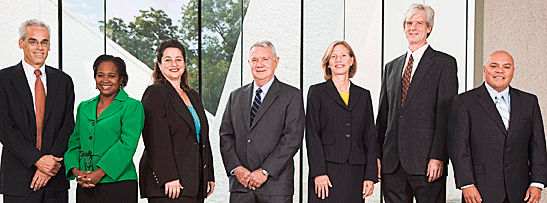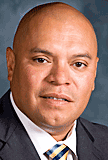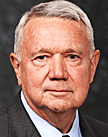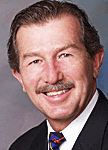Private Meetings to Discuss Public Business Shows Austin City Council May Be Violating Open Meetings Act


Brian Rodgers has been a thorn in the side of Austin city government since at least 1997, when he was one of the citizens who launched a successful campaign to eliminate the influence of big money donations in mayoral and city council elections.
He has agitated for changes on a wide range of issues, including repealing tax subsidies for high-end retail development, achieving equity in property taxes, and arguing his case before the city council against the city’s plan to pay all costs of extending water and wastewater service for the F1 racetrack.
In all of these battles with the powers that be he has done his homework, and spent significant sums to produce studies that provide facts for the city council to consider in carrying out its fiduciary duty and protect the interests of taxpayers.
The only victory he’s been associated with in all these years was the 1997 campaign to limit campaign contributions. He’s been a one-hit wonder who lost on every new issue that came along. At the ballot box he narrowly lost in his campaign to Stop Domain Subsidies. At the podium, pleading with the city not to approve $13.5 million to pay all costs for the F1 track’s water and wastewater service, the council voted 7-0, with little discussion, to do so.
Having mostly lost by trying to influence city policies from the outside he decided to consider running for city council this year, as reported by The Austin Bulldog January 12. In exploring the idea of running, Rodgers sought to gain insights from current council members.

He e-mailed Council Member Chris Riley for a get-together. Rodgers says he spent three hours with Riley on December 28, ensconced in the back room of Austin Java at 12th and Lamar. What’s it like to serve on the council, he asked. What are Riley’s days like? How does he communicate with the mayor and council members?
The answer to that last question floored him.
Rodgers says Riley told him that council members and the mayor meet in regularly scheduled private meetings with each other to talk about city business. These meetings routinely occur in days immediately leading up to posted public meetings of the city council.
“We know how we are going to vote by Thursday (council meeting day) except for (Council Member Bill) Spelman, who’s a wild card,” Rodgers says Riley told him.
“When Riley told me that the council already knows how they’ll vote on Thursdays, I sat there angrily thinking about how community activists pour their time and energy into making our city a better place to live—unaware that the council’s votes are set before they even walk into the council chambers.
“I’ve spoken many, many times before the city council, spending countless hours on research each time, preparing my presentation, getting dressed up to come burn eight hours at City Hall waiting to speak my allotted three minutes. And now I find out it was all a giant waste of time because the council had already decided?
“Why don’t they just post the answers on the entrance to City Hall each Thursday morning and save us all the trouble? It’s not just me, but icons like Mary Arnold and scores of well-intentioned people denied their rights every week by a council too busy or too contemptuous to be bothered by what we have to say.”
Some council members say they can usually discern how their colleagues will vote. Some say they can’t.
In a January 24 interview at Council Member Riley’s home, he did not exactly confirm Rodgers’ account that he said, “We know how we’re going to vote on Thursday,” or exactly deny it. “I don’t remember saying that,” he said. Later he added, “Yeah, on bigger issues then I would expect we would generally know about what to expect from each other. But on the more routine things, we wouldn’t necessarily talk about all those.”

Council Member Randi Shade said, in a January 24 interview in her office, that these one-on-one meetings are “just one data point” and are the “least influential” factor in her arriving at decision on a given issue. She watches board and commission meetings on television. She is on four council committees. She sometimes gets a thousand signatures on an e-mail petition. “Everybody’s influenced differently when people try to get information to us,” she said.

Mayor Pro Tem Mike Martinez said, in a January 20 interview in his office, that not knowing how other council members will vote is a “rarity” and is most likely to happen when dealing with controversial issues. Such as the proposed settlement to settle with the family of Nathaniel Sanders II, who was killed by a police officer. “We did not know how some of our colleagues were going to vote until that very moment,” he said. “Again, that’s the rarity, but it did happen in this case.”

Council Member Spelman said, in a January 24 interview at City Hall, “A year ago people (on the council) voted differently than I thought they would. Now, because I’ve worked with them for a year, I have a feel for their hot-button issues. We surprise ourselves all the time. But I would say most of the time people do what I expect them to do.”
Anyone paying attention since July 2008 could have figured out that private meetings were going on among the mayor and council members.

Four members of the city council—Laura Morrison, Riley, Shade, and Spelman—started posting their calendars on the city’s website soon after taking office. Morrison and Shade were elected in 2008. Riley and Spelman were elected in 2009.
Each of the posted calendars show that these private meetings typically began just before the new electee’s first public council meeting.

Mayor Lee Leffingwell, Mayor Pro Tem Mike Martinez, and Council Member Sheryl Cole do not publish their calendars on the city’s website—nor are they required to do so. But their regular ongoing participation in these private meetings is well documented by the four council members who do publish their calendars.
The Austin Bulldog’s examination of the council member calendars published online for calendar year 2010 indicates that council members nearly always meet with each other in a flurry of one-on-one get-togethers among council members, and one-on-one, or two-on-one, meetings with the mayor. Usually the mayor and six council members have all visited with each other at least once.
These round-robin meetings usually take place a day or two before each Thursday council meeting. The pattern is unmistakable and habitual, evidenced by the calendars of Council Members Morrison, Riley, Shade, and Spelman.
Given the fact that the council met in regular council meetings 26 times in 2010—an average of every other week—plus 13 special called meetings, and numerous budget work sessions—that’s a lot of meeting and conferring while out of the public eye.
What must be noted is that the mayor and all six council members presently serving said this system of holding private one-on-one meetings was already in place and expected of them when they entered office. This is a longstanding institutional methodology with deep roots.
How deep?
Council Member Spelman, who was elected to the council the first time in 1997, said the practice was instituted by Mayor Kirk Watson.
“In 1997, one of the things that Watson campaigned on was that he thought the council members need to talk to each other more and get a better idea of what they thought about things, and not all of a sudden showing up on the dais and not having a clue what everybody else thinks. He thought we had a chance to make better decisions if we had a chance to chew on things privately.”
Now, nearly 14 years later, the methods brought into play in 1997 continue. During those years, 21 people have served on the seven-member council. Presumably not one rocked the boat, since the system persists.
Absent legal guidance or someone pointing out this procedure might well be improper under the Texas Open Meetings Act, the system became entrenched and took on a life of its own.
What do council members and the mayor talk about in these private meetings?
“We talk about whatever we’re working on, obviously,” Mayor Pro Tem Martinez said. He talked about how council subcommittees and board and commissions bring forward a lot of information to consider.
“So, during this time before it gets to the council meeting we’re watching, and we’re staying in touch, and we’re talking to each other about what’s coming towards us,” Martinez says.
“But really, the process, I think, works very well,” he says.
So what’s the problem?
For one thing this procedure seems to turn public city council meetings into well orchestrated events where council members’ minds may be made up on important issues before meetings are called to order.
Not minds made up individually, as in having done one’s personal due diligence, but through a regular series of meetings with each other in days preceding open meetings.
These private meetings allow the mayor and council members to know a great deal about what each other thinks and how each other is likely to vote.
These private meetings deny public access to significant parts of deliberations that are supposed to be conducted in the sunshine of open meetings.
Worse, these kinds of meetings appear to be a serious violation of the Texas Open Meetings Act.

Bill Aleshire was a legislative aide to the House sponsor of the Texas Open Records Act (now Texas Public Information Act) passed in 1973, the same year the Texas Open Meetings Act passed. From January 1986 through December 1998 Aleshire was the Travis County judge, giving him practical experience with the act as an officeholder. Today, as an attorney with Riggs, Aleshire & Ray PC in Austin, a significant part of his legal practice involves the act. He volunteers legal advice to media outlets for the nonprofit Freedom of Information Foundation of Texas.
What does Aleshire say about these private meetings of the council members?
“At the very soul of the Open Meetings Act is the concept that the people are entitled to observe the process of how their elected officials come to the ‘meeting of the minds’ that results in action by the government,” Aleshire said.

“Since the Open Meetings Act was passed, I have never seen such a structured conspiracy by a governing body to serially conduct secret discussions of the people’s business as a routine way of doing business,” Aleshire said. “It is designed to hold secret meetings of the city council round-robin style.”
Joe Larsen, special counsel in the Houston office of the international law firm Sedgwick, Detert, Moran & Arnold LLP, is one of the most respected attorneys in Texas on the subject of the Open Meetings Act. The nonprofit Freedom of Information Foundation of Texas last year awarded Larsen its prestigious James Madison Award, named for the fourth president of the United States and author of the Bill of Rights, which includes in its First Amendment, “Congress shall make no law…abridging the freedom of speech, or of the press.”
“I am not surprised there would be ad hoc communication on an issue,” Larsen said, “but having standing meetings every week looks like evidence of intent to circumvent the act.”
Aleshire said, “I will not say definitely that a crime has been committed. But in my opinion, this formally structured system for holding secret deliberations in which all the council members are participating is absolutely, unequivocally, without any doubt a violation of the spirit, if not the letter, of the Open Meetings Act that requires such deliberation of pubic business be done in full view of the public.
“Getting cute, as the council has done, by never having a quorum in the room at the same time—but while making sure that the serial conversations involve a quorum (in fact all) of the council members—does not guarantee they have not committed a criminal violation of the act that also prohibits ‘walking quorums,’” Aleshire said.
Larsen said, “I certainly agree that it is a very significant fact that every member of the council meets secretly with each other, and then every member of the council meets secretly again with the mayor and another council member, virtually always before every open meeting of the council,” Larsen said. “I think it’s legally significant that this system incorporates all the council members and every council meeting.”
To be clear, the Texas Open Meetings Act does not prohibit council members from meeting in numbers fewer than four, which constitutes a quorum of the seven-member council, outside a properly posted open meeting.
What would be a violation is to have members meeting in numbers less than a quorum for the purpose of secret deliberations.
Section 551.143 of the Act states, “A member or group of members of a governmental body commits an offense if the member or group of members knowingly conspire to circumvent this chapter by meeting in numbers less than a quorum for the purpose of secret deliberations of this chapter.”
Based on exclusive individual interviews with The Austin Bulldog, the mayor and city council members all said these regularly scheduled private meetings with each other are helpful in making better decisions.
The fact that four council members publish their calendars online to document these meetings is a strong indication they are not aware they may be violating the Open Meetings Act.

These elected officials seem unaware of the gross contradiction between trying to foster transparency and open government—evidenced by publishing their calendars for easy public access—while simultaneously undermining the very idea of open government through private deliberations about public business.
Council Member Cole is an attorney who was staff counsel for the Texas Municipal League from 1995 until 2001, and says she is familiar with the Open Meetings Act. “Our one-on-ones with just one single council member does not violate that,” she said in a January 21 interview. “I can’t imagine how we could govern a city of 750,000 with only seven of us and not be able to talk to each other on an individual basis.”
Council Member Riley, who is also an attorney, said, “I’ve been dealing with the Open Meetings Act ever since I was a first-year law student. I worked at the Opinion Committee at the Attorney General’s office, which dealt with open meetings and open records.” He worked there a year, he said, “So I’ve been fairly familiar with the act ever since.”
Yet neither of these experienced attorneys apparently realized this flawed system of private meetings might cross the line from occasional ad hoc discussions, which are permitted, to actions that may flagrantly violate the Open Meetings Act.
What would violate the act is reaching a meeting of the minds—through private deliberations—that gives a great deal of predictability about where each council member stands on city business issues and how each council member will vote on those issues.
Attorney General Opinion DM-95, issued by Dan Morales March 4, 1992, states, “Presumably, when a group of people act in concert, some meeting of the minds has occurred to make that action possible. With respect to actions taken by governmental bodies, it is the process by which this meeting of the minds occurs that the act is intended to open to public scrutiny.”
More recently, Attorney General Greg Abbott issued Opinion No. GA-0326 on May 18, 2005, which specifically addresses the kinds of meetings being held among the mayor and council members.
“[W]e construe Section 551.143 to apply to members of a governmental body who gather in numbers that do not physically constitute a quorum at any one time but who, through successive gatherings, secretly discuss a public matter with a quorum of that body. In essence, it means a ‘daisy chain of members the sum of whom constitute a quorum’ that meets for secret deliberations.”
GA-0326 further states, “As a general matter, Texas civil courts, in construing the OMA (Open Meetings Act), rely on the OMA’s core purposes, which is to guarantee access to the actual decision-making process of governmental bodies. … As such, the civil courts construe the OMA’s provisions liberally in favor of open government. … “[w]hen a majority of a public decision-making body is considering a pending issue, there can be no ‘informal’ discussion.
“There is either formal consideration of a matter in compliance with the Open Meetings Act or an illegal meeting.”
Attorney Aleshire said, “Public exposure of this institutionalized system for back-room deal-cutting shows what a lie it is for Austin to claim to be ‘progressive’ and a ‘hot bed of democracy.’”
Aside from the serious legal implications, once the public finds out about the years and years of private meetings among the mayors and council members, citizens are apt to question the value of participating in council meetings.
The potential political backlash comes just as three incumbents—Morrison, Riley, and Shade—are rolling out their reelection campaigns.
“After this,” Aleshire said, “why would anyone believe they are seeing anything but a rehearsed put-on show when they watch or attend an Austin City Council meeting?”
Disclosures: Brian Rodgers contributed $250 to The Austin Bulldog last year to help fund a story about property taxes that was published July 30, 2010, and he is a Sustaining Supporter who contributes $25 a month. Randi Shade has contributed $50. Bill Spelman has contributed $100.
This investigative report was made possible by contributions to The Austin Bulldog, which operates as a 501(c)(3) nonprofit to provide investigative reporting in the public interest. The Austin Bulldog has many investigative projects waiting to be funded. You can help bring these investigations to life by making a tax-deductible contribution.








as a new journalist, this article helps me get a better understanding of how to write about sensitive topic while remaining neutral.